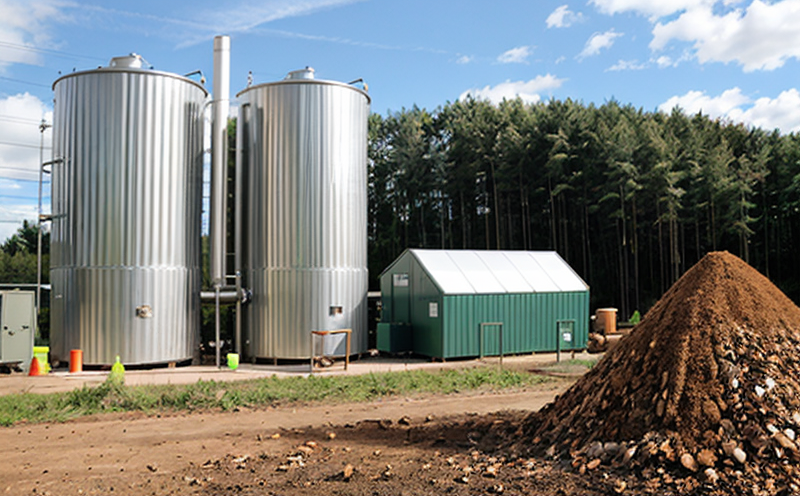ASTM D3176 Ultimate Analysis of Waste Biomass Fuels
The ASTM D3176 standard provides a comprehensive method for determining the ultimate analysis of waste biomass fuels. This is essential for assessing the composition and potential energy content of these materials, which are increasingly being converted into fuel for waste-to-energy processes.
Waste biomass fuels encompass a variety of organic substances such as wood chips, agricultural residues, municipal solid waste, and other forms of refuse suitable for conversion to bioenergy. By performing the ultimate analysis according to ASTM D3176, laboratories can provide critical data on key components including moisture content, volatile matter, fixed carbon, ash, and oxygen by weight.
The methodology involves several steps: drying the sample at a specific temperature (105°C), heating it in a nitrogen atmosphere up to 925°C for determining ash and volatile matter, and finally incineration under similar conditions to ascertain fixed carbon. These analyses are crucial for optimizing waste-to-energy processes, ensuring compliance with environmental regulations, and maximizing fuel efficiency.
The results obtained from this method can inform the design of combustion systems, feedstock blending strategies, and the development of new conversion technologies aimed at reducing greenhouse gas emissions while generating renewable energy sources. This service is particularly valuable for facilities involved in waste management, recycling initiatives, and those pursuing sustainable energy solutions.
| Applications | |
|---|---|
| Facility Design | Optimizing the configuration of waste-to-energy facilities based on fuel composition. |
| Feedstock Quality Control | Evaluating and ensuring consistency in the quality of biomass feedstocks. |
| Emissions Monitoring | Tracking emissions during combustion processes to meet regulatory standards. |
- Identifying the most suitable feedstocks for waste-to-energy conversion.
- Evaluating the efficiency of different types of biomass fuels in energy production.
The ultimate analysis as per ASTM D3176 is not only a technical procedure but also a pivotal step in the broader context of sustainable resource management. By accurately characterizing waste biomaterials, this test helps bridge the gap between environmental responsibility and renewable energy generation.
Industry Applications
| Applications | |
|---|---|
| Waste Management Facilities | Assessing the potential of waste streams for conversion into fuel. |
| Bioenergy Plants | Evaluating feedstock quality to ensure optimal performance and efficiency. |
| Research Institutions | Developing new methods for the sustainable conversion of biomass fuels. |
This ASTM D3176 service is instrumental in various sectors, including municipal waste management, industrial recycling programs, and academic research focused on bioenergy. It supports the transition towards more environmentally friendly energy solutions by providing precise data necessary for process optimization.
Quality and Reliability Assurance
The ASTM D3176 ultimate analysis is conducted in a controlled laboratory environment to ensure the accuracy of results. Rigorous quality control measures are implemented, including strict adherence to standard protocols, calibration of instruments, and validation through reference materials.
Our laboratories employ highly skilled technicians who follow internationally recognized standards such as ISO/IEC 17025 for proficiency in laboratory testing and measurement. This ensures that the ultimate analysis results are reliable, reproducible, and consistent with industry benchmarks.
The process begins with meticulous sample preparation, ensuring that all samples are representative of the feedstock being analyzed. Once prepared, the samples undergo rigorous testing using precise analytical equipment like thermal analyzers and elemental analyzers. The data obtained is then meticulously recorded and reported in accordance with ASTM D3176 guidelines.
Our commitment to quality extends beyond mere compliance with standards; we also invest in continuous improvement initiatives to enhance our services further. Regular audits, staff training programs, and the adoption of advanced technologies are part of our ongoing efforts to maintain excellence in waste-to-energy testing.





